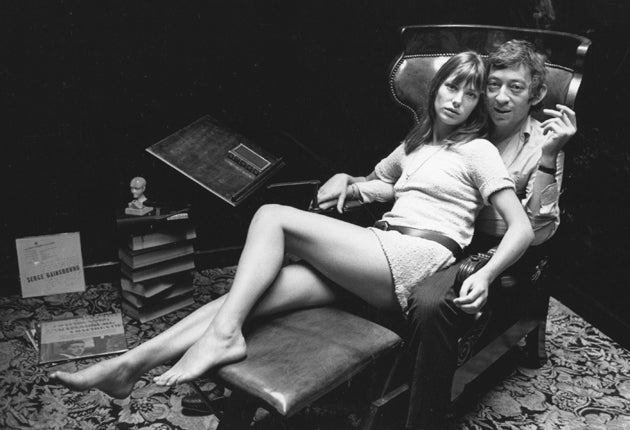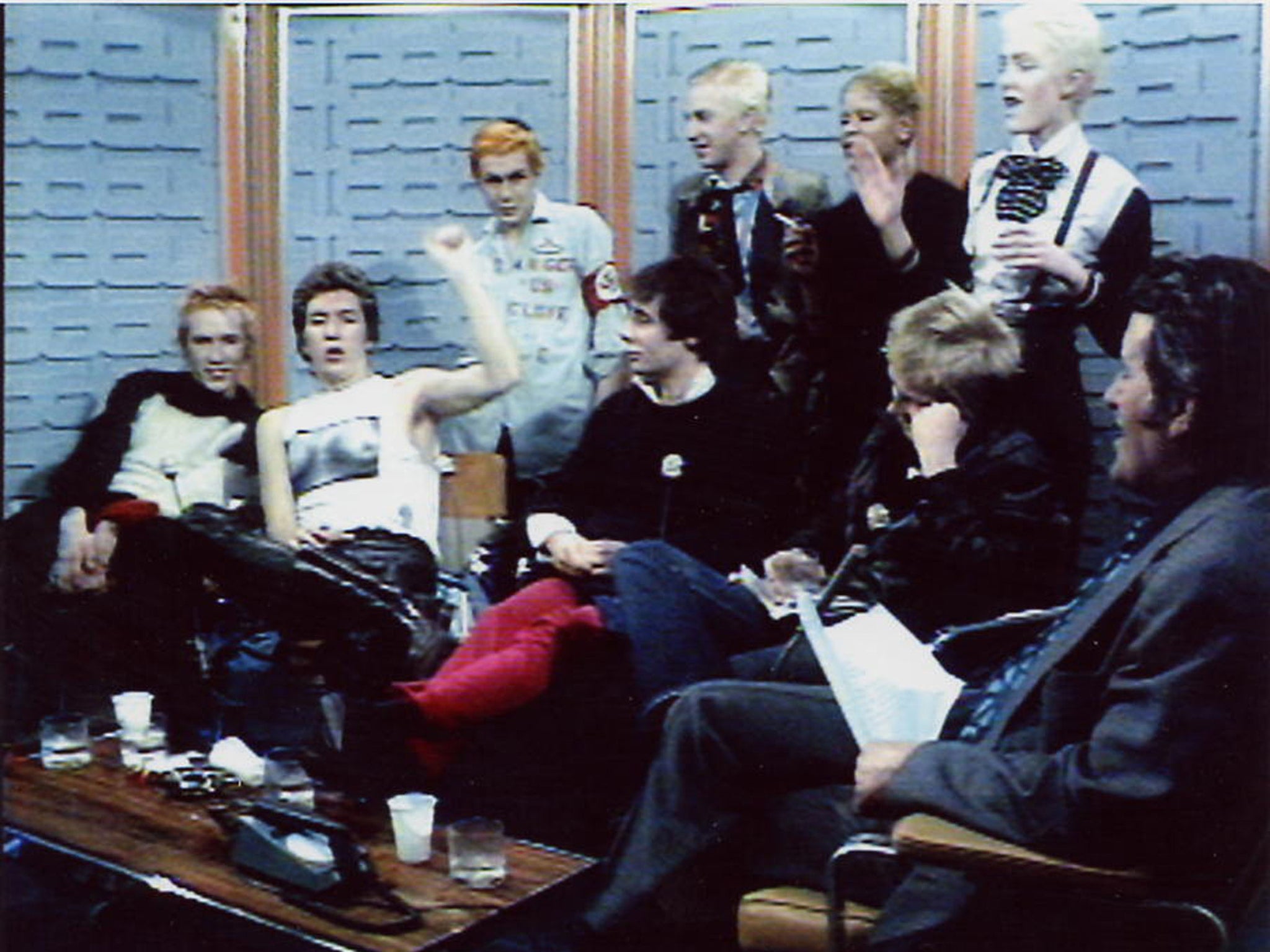‘Why, why, why?’ – 9 famous songs that were banned
Tom Jones’ song ‘Delilah’ has been banned by the Welsh rugby union. Some songs were written to provoke, while others have fallen foul of misinterpretation. Lizzy Cooney picks some of the most infamous cases of musical censorship

Your support helps us to tell the story
From reproductive rights to climate change to Big Tech, The Independent is on the ground when the story is developing. Whether it's investigating the financials of Elon Musk's pro-Trump PAC or producing our latest documentary, 'The A Word', which shines a light on the American women fighting for reproductive rights, we know how important it is to parse out the facts from the messaging.
At such a critical moment in US history, we need reporters on the ground. Your donation allows us to keep sending journalists to speak to both sides of the story.
The Independent is trusted by Americans across the entire political spectrum. And unlike many other quality news outlets, we choose not to lock Americans out of our reporting and analysis with paywalls. We believe quality journalism should be available to everyone, paid for by those who can afford it.
Your support makes all the difference.While it’s easy enough to edit an expletive out of a song, there are many other reasons a track might fall foul of broadcasting standards or public opinion.
Some songs have been banned for referencing drugs, others for attacking the monarchy. Some were banned because it was believed they implied something sexual, despite not stating it outright.
One recent example of a song being banned is “Delilah” by Welsh crooner Tom Jones. In February, it was announced that choirs had been banned from singing the hit during their performances on rugby international matchdays at the Principality Stadium in Cardiff.
The song’s lyrics include reference to a woman being murdered by her jealous partner.
The Welsh Rugby Union – the governing body which has recently been hit by sexism and discrimination allegations – took the song off its half-time entertainment and music playlist during Test matches in 2015. Guest choirs have also been asked not to feature the song.
From stutters to sexual groans, and from coercive crooning to outer-space catastrophe and explicit lyrics, here are eight other songs that were, at least temporarily, banned from airplay.
Frankie Goes to Hollywood, “Relax” (1984)
An otherwise relaxing Wednesday morning was dramatically disrupted as BBC Radio 1 breakfast show host Mike Read made a horrible realisation.
Frankie Goes to Hollywood’s debut single “Relax” was playing. The story goes that, upon heading the line “when you want to come”, Read lifted the needle on the record, halting it halfway through.
The irate presenter then announced he would refuse to play the synth-pop tune due to its “obscene” lyrical content. The BBC followed suit by banning the track from radio and TV.
Frankie Goes to Hollywood capitalised on this “prudish” reaction, while denying that the lyric was a sexual reference, and went on to sell two million copies of the single in the UK.
Enjoy unlimited access to 100 million ad-free songs and podcasts with Amazon Music
Sign up now for a 4 month free trial (3 months for non-Prime members)
Enjoy unlimited access to 100 million ad-free songs and podcasts with Amazon Music
Sign up now for a 4 month free trial (3 months for non-Prime members)
Read has since expressed he actually thinks the song is “a great dance track”, and lifted his personal ban.

Robin Thicke ft TI & Pharrell, “Blurred Lines” (2013)
Robin Thicke’s 2013 pop song was the subject of a high-profile copyright lawsuit, but it also caused controversy for its lyrical content.
Despite being nominated for multiple awards, a spokesperson for Rape Crisis said of the song: “Certain lyrics are explicitly sexually violent and appear to reinforce victim-blaming rape myths, for example about women giving ‘mixed signals’ through their dress or behaviour.”
With lines such as “you know you want it”, the tune received negative reviews from critics and was accused of glorifying rape culture. It was banned by multiple student unions and their radio stations.
David Bowie, “Space Oddity” (1969)
David Bowie’s “Space Oddity” was initially picked up by the BBC, who used it to soundtrack the launch of the Apollo XI moon mission in 1969. Inspired by Stanley Kubrick’s film, 2001: A Space Odyssey, the song had been released earlier that year.
Despite being pleased that his song was chosen to accompany the broadcast of the moon landing, Bowie said the producers seemed to have overlooked the meaning of the song.
“I’m sure they really weren’t listening to the lyrics at all; it wasn’t a pleasant thing to juxtapose against a moon landing,” he said in a 2003 interview. “Of course, I was overjoyed that they did... Nobody had the heart to tell the producer: ‘Um… but he gets stranded in space, sir.’”
Upon realising the lyrics described Major Tom floating away into the abyss, the BBC banned all play of the song until after the astronauts had returned from their mission.
Serge Gainsbourg and Jane Birkin, “Je T’aime ... Moi Non Plus” (1969)
It’s hard to believe a song that caused such widespread scandal would one day soundtrack the pouring of chocolate sauce over M&S fondants, but here we are.
“Je T’aime … Moi Non Plus’’ was the first foreign language song to reach No 1 in the UK charts, but was also the first No 1 to be banned from radio play. It was condemned by the Vatican, and song was also banned in Sweden, Spain, and Italy, while in France it was only permitted to be played after 11pm.
The song was written as a love song for Brigitte Bardot, and includes the scandalising sounds of Jane Birkin moaning and breathing heavily. A rumour circulated that Birkin and Gainsbourg had placed a microphone under their bed, though this rumour has been dispelled.

Donna Summer, “Love to Love You Baby” (1975)
The late Donna Summer’s iconic disco track was inspired by “Je T’aime … Moi Non Plus” and it certainly replicates the euphoric groans.
The song is so explicit that the BBC refused to play or promote it, and Time magazine claimed the full 17-minute recording “was a marathon of 22 orgasms”.
Summer, dubbed the “first lady of love” because of this song, apparently recorded the vocals sprawled out across the floor of a dark room, pretending to be Marilyn Monroe in a sex scene.
"Everyone’s asking… Did you touch yourself? Yes, well, actually I had my hand on my knee,” said Summer when she was 26.
However, Summer later said she wished it wasn’t her who performed the controversial song: “I love the music, I just wished that I hadn’t sung it. But it doesn’t bother me anymore."
The Who, “My Generation” (1965)
“My Generation” by The Who was not banned because it encouraged an attitude of rebellion amongst Sixties teens. It didn’t use any expletives. But the BBC banned this song anyway, because of Roger Daltrey’s vocal stutter on the lyric: “Why don’t you all f-fade away.”
Apparently, the broadcaster was concerned that it could offend people with geniune stutters. However, the BBC lifted its ban as the song became more and more popular.
In 2006, “My Generation” was named by Rolling Stone as the 11th best song of all time.
The Sex Pistols, “God Save the Queen” (1977)
The Sex Pistols’ anarchist anthem “God Save the Queen” was swiftly banned from radio when it threatened to take the UK No 1 spot during the Queen’s Silver Jubilee celebrations in June 1977. The song was also banned by the Independent Broadcasting Agency, who regulated local radio stations at the time.
The song was headed for first position in the charts, but Rod Stewart managed to pip the Pistols to it with “I Don’t Want to Talk About It”. This resulted in some conspiracy theorists delcaring that the chart was a fix.
The song was re-released in 2002 with the intention of taking the top spot, this time for the Golden Jubilee.
Lead singer, John Lydon addressed criticism from supporters of the Queen, telling one interviewer: “I never said I didn’t either, I just don’t like the institution”

George Michael, “I Want Your Sex” (1987)
This George Michael tune contains the lyrics, “Sex is natural, sex is fun”, and was restricted to post-watershed plays only by the BBC. The broadcaster feared the song would promote casual sex and was therefore counterproductive to the effort to contain the spread of Aids.
Michael opposed this reading of the song, insisting it was “about attaching lust to love, not just to strangers”.
In a 2008 interview, Michael spoke of how frustrated he’d been over the ban. “I wasn’t expecting the blanket ban,” he said.
“I think it’s unfair because it’s the first ban of its kind in a long time and I think that if I were not George Michael then I would have no problem being played on those stations. And it’s incredibly irritating having a record out for a couple of weeks and knowing that people haven’t heard it.”



Join our commenting forum
Join thought-provoking conversations, follow other Independent readers and see their replies
Comments